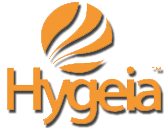
Pregnancy and postpartum are journeys filled with immense joy and a whirlwind of emotions. While you’re likely busy preparing for your new arrival, it’s crucial to prioritize your own well-being. This includes your mental health, which can sometimes take a backseat during these demanding yet beautiful times.
Understanding the Landscape: Common Mental Health Concerns
Many women experience emotional shifts during pregnancy and postpartum. Some of the most common concerns include:
Anxiety: Worrying about the health of your baby, labor and delivery, or parenthood in general is perfectly normal. However, if anxiety becomes overwhelming and interferes with your daily life, it’s important to seek help.
Depression: Feeling down, low on energy, or experiencing a loss of interest in activities you once enjoyed could be signs of perinatal depression, which affects millions of women.
Baby Blues: Feeling weepy, irritable, or overwhelmed in the first few days after delivery is common. If these feelings persist beyond two weeks, it could be a sign of postpartum depression.
Postpartum OCD (Obsessive-Compulsive Disorder): Intrusive thoughts or repetitive behaviors centered around your baby’s well-being can be a sign of postpartum OCD.
It’s Okay to Ask for Help: Resources and Strategies
The good news is that you don’t have to navigate these challenges alone. Here are some resources and strategies to support your mental well-being:
Talk to Your Doctor: Be open and honest with your doctor about your emotional state. They can screen for perinatal mood and anxiety disorders and recommend treatment options.
Connect with a Therapist: Therapy can provide a safe space to explore your feelings and develop coping mechanisms. Consider therapists specializing in perinatal mental health. There are many options to search for therapists, including the Psychology Today website, where you can filter on geography and area of focus, and then read biographies of therapists in your area.
Support Groups: Connecting with other mothers experiencing similar challenges can be incredibly validating. Online and in-person support groups can be a source of strength and connection.
Self-Care Practices: Prioritize activities that nourish your mind and body, such as meditation, yoga, spending time in nature, or pursuing hobbies you enjoy.
Building a Strong Support System: Having a reliable network of family, friends, or a partner who can listen and offer support can make a significant difference.
Hygeia Cares: Supporting Moms Every Step of the Way
At Hygeia Health, we understand that motherhood is a journey with its unique set of challenges and rewards. We’re committed to empowering mothers not just with high-quality breast pumps, but also with resources for your overall well-being.
Here are some additional resources we recommend:
- The National Maternal Mental Health Hotline: Call or text 1-833-TLC-MAMA (1-833-852-6262) for confidential support from trained counselors, available 24/7.
- Postpartum Support International (PSI): Offers support groups, resources, and a helpline (Postpartum Support International).
Remember, prioritizing your mental health is not a sign of weakness – it’s a sign of strength and a commitment to your well-being. By seeking support and taking care of yourself, you’ll be better equipped to care for your baby and thrive in your new role as a mother.

October is Breast Cancer Awareness Month, a time to raise awareness about this serious disease that has impacted nearly all of our lives in one way or another. Breastfeeding has been linked to a reduced risk of breast cancer, making it an important topic for women of all ages, but there is more to know about early detection and risk factors.
What is breast cancer?
Breast cancer is a disease that occurs when cells in the breast grow abnormally and divide uncontrollably. It can affect both men and women, but it is most common in women. It can occur at any age but it is seen in women above the age of 40 years most frequently.
Do you know the signs and symptoms?
Early detection is key to successful treatment of breast cancer. If you notice any of the following changes in your breasts, see your doctor:
- A lump or thickening in the breast or underarm
- A change in the size, shape, or texture of the breast
- Nipple discharge (other than breast milk)
- Skin changes on the breast, such as dimpling, puckering, or redness
- Pain in the breast
What are the risk factors?
Several factors can increase your risk of developing breast cancer, including:
- Age: The risk of breast cancer increases with age
- Family history: Having a close relative with breast cancer can increase your risk.
- Genetics: Certain genetic mutations, such as BRCA1 and BRCA2, can increase your risk.
- Hormone therapy: Taking hormone replacement therapy after menopause can increase your risk.
- Breast lumps: Women who have had some type of non-cancerous breast lumps are more likely to develop cancer later on.
- Dense breast tissue: Women with dense breast tissue have a higher chance of developing breast cancer.
- Obesity: Being overweight or obese can increase your risk.
- Diet & Lifestyle choices: Women who smoke, eat a high-fat diet, and drink alcohol are more at risk of developing breast cancer.
- Radiation exposure: Frequent exposure to X-rays and CT scans may raise a woman’s chance of developing breast cancer.
Breastfeeding and Breast Cancer
Studies have shown that breastfeeding can reduce your risk of developing breast cancer. The longer you breastfeed, the greater the protection.
At Hygeia Health, we believe in the power of breastfeeding. Our high-quality breast pumps are designed to make pumping easier and more efficient, allowing you to focus on bonding with your baby.
We also offer resources and support to help mothers on their breastfeeding journey. Our website provides information on breastfeeding and pumping, and our customer service team is available to answer your questions.
Get a Free Breast Pump
We believe that every mother should have access to the tools and support they need to breastfeed their baby. That’s why we offer 100% insurance-covered breast pumps to mothers who are breastfeeding or have recently breastfed.
To apply for a free breast pump, simply visit our website and fill out the application form. We’ll review your application and contact you with the next steps.
Empower Yourself
By understanding the risks of breast cancer and the benefits of breastfeeding, you can take steps to protect your health. Schedule regular check-ups with your doctor, perform monthly self-exams, and consider genetic testing if you have a family history of breast cancer.
Let’s work together to raise awareness about breast cancer and support those affected.

September is Neonatal Intensive Care Awareness Month (NICU Awareness), a time to recognize the incredible strength and resilience of NICU families. For mothers of NICU babies, breastfeeding can be a source of comfort, connection, and nourishment.
Challenges Faced by NICU Moms
NICU moms often face unique challenges in all aspects of mothering a newborn, but specifically, breastfeeding a NICU baby can be particularly difficult. These challenges may include:
Separation from their baby: Being unable to hold and feed baby can be emotionally taxing.
Pumping challenges: Maintaining milk supply while baby is in the NICU can be physically demanding.
Stress and anxiety: The stress of having a baby in the NICU can impact a mother’s milk supply as well as the overall ability to breastfeed.
The Benefits of Breastfeeding a NICU Baby
Despite these challenges, breastfeeding a NICU baby offers numerous benefits and is still very possible. Some of these benefits include:
Colostrum: The first milk produced after birth is rich in nutrients and antibodies that can help protect your baby from infections. While baby may not be able to latch, a mom can pump and the colostrum can still nourish baby.
Reduced risk of infections: Breast milk contains antibodies that can help protect your baby from infections, which are common in NICU babies.
Improved growth and development: Breast milk is specifically designed to meet your baby’s nutritional needs and can help promote healthy growth and development, which are all the more necessary in premature births and NICU babies in general.
Stronger bond: Breastfeeding can help you bond with your baby, even if they are still in the NICU and you cannot have skin-to-skin contact.
Support NICU Moms
Supporting a mother of a NICU baby can make a world of difference. By offering your support, you can help a NICU mom feel less alone and more empowered to care for her baby. Here are a few ways you can offer your support:
Be there for her: First and foremost, offer emotional support, a listening ear, and words of encouragement.
Help with practical tasks: Helping with what seem like simple household chores, errands, or childcare for older children can make a world of difference to a stressed NICU mom.
Respect her feelings: Understand that she may be feeling stressed, anxious, or overwhelmed. Avoid making assumptions or offering unsolicited advice.
Connect her with resources: While you do have to be careful about unsolicited advice, it can be helpful to be sure she is connected with information about local support groups, lactation consultants, or other resources that can help her.
Celebrate her strength: No matter how small, take time to acknowledge her resilience and the challenges she is facing. Let her know that you appreciate her strength and courage.
How Hygeia Health Can Help
At Hygeia Health, we understand the unique challenges faced by NICU moms and are here to give the best support.
Support resources: We offer resources and support to help NICU moms on their breastfeeding journey. Our website provides information on breastfeeding and pumping, and our customer service team is available to answer your questions.
Lactation assistance: Access an expert anytime, anywhere for assurance and support on your breastfeeding journey. We partner with Nest Collaborative to provide virtual breastfeeding consults covered by most insurance plans at no cost to you.
Get a free breast pump: We believe that every mother should have access to the tools and support they need to breastfeed their baby. That’s why we offer a free breast pump to NICU moms through our NICU Mom Support Program. Our high-quality breast pumps are designed to make pumping easier and more efficient, allowing you to focus on bonding with your baby.
Let’s work together to support NICU families and celebrate the incredible strength and resilience of these amazing mothers.




